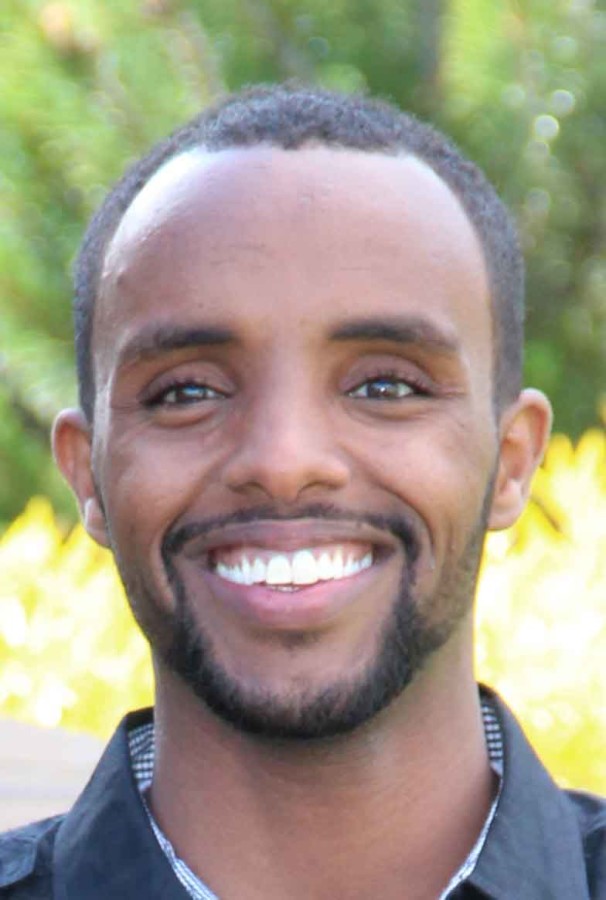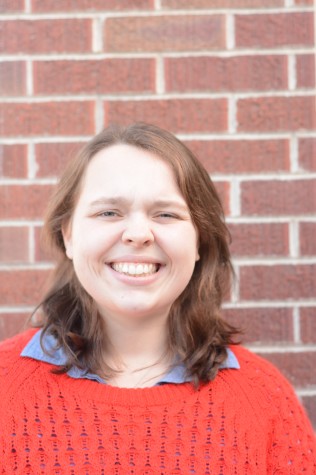ASEWU president speaks about PUB redesign
March 12, 2015
This news story is part one of a two-part feature story on D.J. Jigre.
As D.J. Jigre, ASEWU president of Eastern, stepped into The Mason Jar on a cold February afternoon, he got noticed by several people immediately, who greeted him with a high-spirited “Hey, D.J.!” Jigre acknowledged them with an overabundant smile.
Jigre’s friendly personality is what students at Eastern recognize as the leader of ASEWU, the leader of EWU students, the voice of the students and the one they can go to to talk about anything.
A super senior, as Jigre called himself, he is a communications major at EWU with a minor in race and culture studies, along with a leadership certificate. A former track and field athlete from Kent-Meridian High School in Kent, Washington, he is a first-generation student.
Jigre is dressed warmly — he is wearing light blue jeans and a charcoal gray sweater — which evokes a calm essence. Many students are outspoken when they talk to him; he portrays a friendly sense that is very rare to come by nowadays in a world where everyone seems so into themselves and their social media, or relationships or school or work. He welcomed me with a stern handshake and a glowing smile.
He ordered a cappuccino, yet claims to be a caramel macchiato kind of guy. It does not matter where he is at, “one hit of a caramel macchiato and I’m good for the whole day. That’s the only thing I’m addicted to, is coffee itself,” Jigre said.
The bistro in downtown Cheney is quite busy for a Wednesday. Middle-of-the-week blues, it seems. Everyone wants to get away from school and relax their sorrows away with a warm coffee drink and a house-made scone.
Not Jigre. He walks in and instantly starts talking about the PUB redesign.
“During the fall quarter, man, that was unexpected. We thought it was going to be a great year, then at the same time, you just never know what’s going to hit you. You never know. You got to deal with it as it comes,” said Jigre. “And for [ASEWU], it was more in terms of the PUB remodel.”
According to Jigre, marketing and education forums were tossed around regarding how ASEWU should pursue the PUB redesign tactics to get students to vote.
In 2014, the vote for the PUB redesign lost by a mere 10 votes that ultimately made a huge difference. This year, Jigre said pushing advertising and visuals around campus, versus having educational aspects involved, worked. The PUB redesign passed in February 2015 with 1,052 students voting for and 983 voting against it.
Jigre said the various fees and the questions many students have about why the PUB is being remodeled compared to other buildings, such as the science building, makes sense.
According to Jigre, many students last year thought saying yes to the PUB remodel would mean saying no to fixing the science building. D.J. said students had a huge “misinterpretation” about where the money was coming from for the PUB.
Quarters to semesters, library hours and the PUB remodel are all within ASEWU’s reach to change and get student input on. University measures that use state dollars, such as the science building, are not.
“It is done. We got the library hours,” said Jigre. “It’s just a matter of, when it does open up, getting students to really get hyped up about it, get amped and use it because if you don’t use it, you lose it. Five years in the works and it’s not just within our administration … I’m so happy it worked in our favor. … That’s the power of what students can do.”
According to Jigre, the first thing he was taught as a leader was to pick his battles.
“The battles that I chose were things that pertained to students on a greater scale, both here and now and in the future. I’m more of a futuristic kind of guy,” said Jigre. “I like to look at the bigger picture, not just what works for us now, but what’s going to work for us for generations to come, and I want to make sure that when I leave [Associated Students,] they have that established — everything that we’ve worked on, everything that they didn’t work on — so that way they don’t have to reinvent the wheel, so to speak.”
Jigre said EWU students claimed ASEWU should not fix something that is not broken. According to Jigre, students need to open their eyes, sit down and see the PUB redesign for what it is and not judge it without knowing the details, such as the heating and plumbing.
“It’s a $35 million project, but out of that $35 million project, you won’t even see it because it all goes down to plumbing and maintenance and electricity … That’s the things that it needs, electricity, plumbing and everything,” said Jigre.
According to Jigre, it would cost about $10 million dollars in deferred maintenance, meaning that money would go toward the inner structure of the PUB.
Jigre does not want to play the blame game; rather, he would find the answers and work on it with students. Jigre said students have told him they want better food, lounging, outlets, better lighting and natural lights.
“Now, once we have that established – everything else that students brought up to us, the lounging, better environment, better food – once we have that, that’s where we can send that money to make it what [we want.]”
Jigre said the PUB building was perfect for students over 20 years ago, but since this is the generation of millennials, it does not suffice for the growing technological need. Many students, including Jigre, think the PUB is not educational or inviting in any way and not someplace that students can thrive well in.
Jigre said he bases this redesign on the concept of a home away from home, the idea that students do not have a good visualization of a building that stands out to them, that is “iconic,” a building that makes them want to come back, besides the red turf. Many students don’t have an answer when Jigre asks them what building they like and makes themselves want to come back to Eastern.
Good or bad, the PUB needs to be remodeled, said Jigre.
“I just really hope that students understand because I am to the point, I don’t know what to do, what next because I honestly don’t know. As a leader, there’s that one point you hit. You don’t know what’s the right solution. Everybody has their own way and when you can’t bring everybody together, understand or share the same vision, how can you do that? So I posed that question to students: How can we come together and envision a better Eastern, a better place for all of us?”
Part II of the D.J. Jigre feature can be viewed here.









